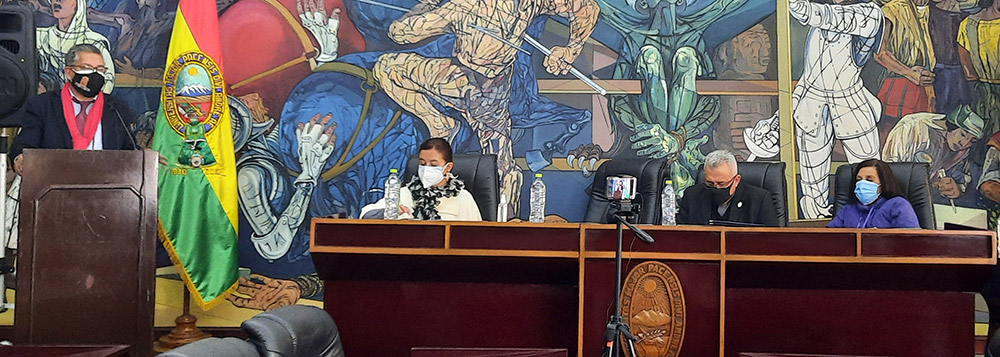The Bolivian Catholic University joins the CODICIS project for the recovery and conservation of documentary heritage

The CODICIS project is made up of a consortium of 5 universities from Peru and Mexico and two universities from Spain and Italy that works for the recovery and conservation of the documentary and bibliographic heritage of Latin America and Europe.
This project is funded by ERASMUS of the European Union and aims to train professors from universities in those countries for teaching in the recovery, conservation and authorization for research of important heritage collections.
In an academic event, the CODICIS project was presented with the participation of academic authorities from the “San Pablo” Catholic University of Arequipa, the University of Piura (Peru), the Autonomous University of Puebla, the Pan American University in Guadalajara (Mexico) and the Bolivian Catholic University. “San Pablo” and Universidad Mayor de San Andrés (Bolivia).
The European peers are the University of Catania (Italy) and the University of Barcelona (Spain).
In his speech, Father José Fuentes Cano, National Rector of the UCB, stated that: “a person who forgets his history does not know himself at all, with serious damage to his identity and his personal being; “A country that does not know its history has no roots and is at the mercy of fashions and lies.”
With these opening words, the national rector highlighted the importance of the CODICIS project for the Bolivian Catholic University for being an action that benefits society and a valuable opportunity for international university cooperation that strengthens inter-institutional relationships and the development of academic networks. for the benefit of higher education.
Likewise, he highlighted the specific collaboration to the CODICIS project that academics from the Tarija Regional Academic Unit carry out in favor of the conservation of the bibliographic heritage of Bolivia.
In turn, José Loaiza, Regional Rector of the Tarija headquarters of the UCB, expressed his gratitude to the entire consortium of universities that are part of this project, “there is no doubt about the importance of knowing and recognizing our identity to define a common destiny.” to have shared visions of the people.”
He also highlighted that in the city of Tarija there are documents and bibliographies that highlight the historical heritage such as the Tomás O'connor D'arlach and Carlo Casap libraries, and particularly the Franciscan Ecclesial Documentation Center, cataloged as the most important internationally.

See the note on the original site: Here
Share on:
